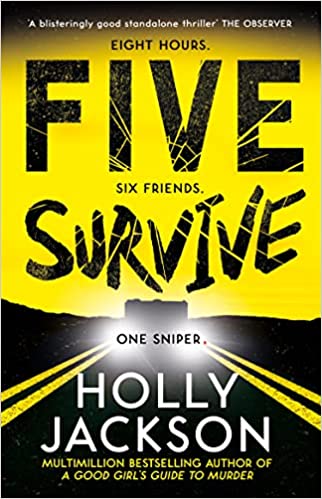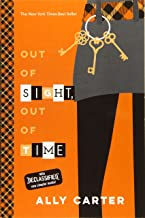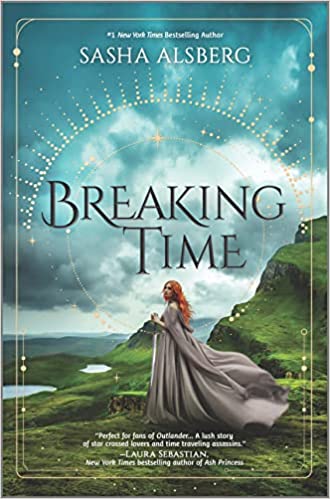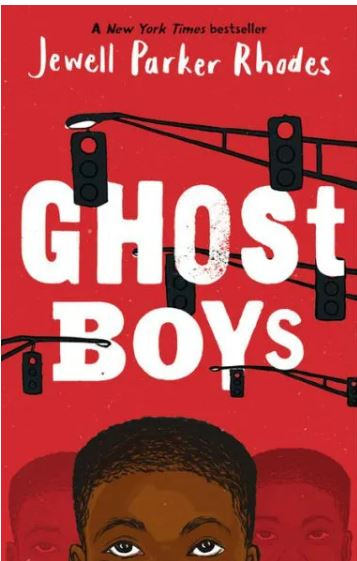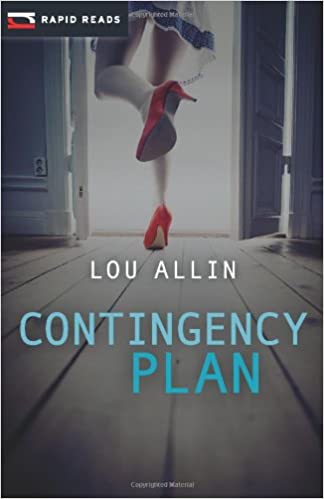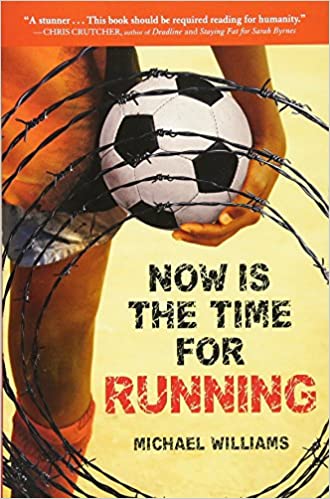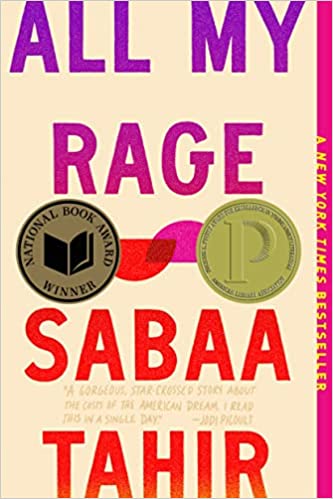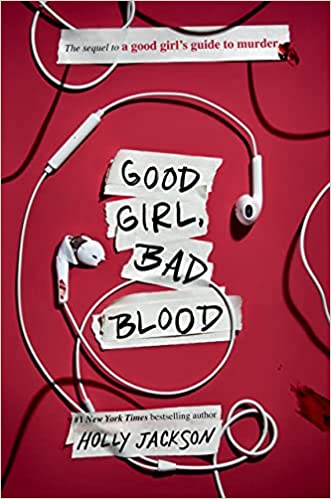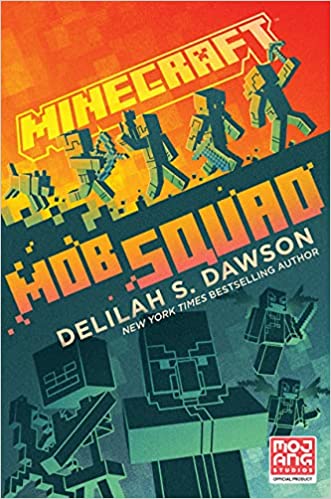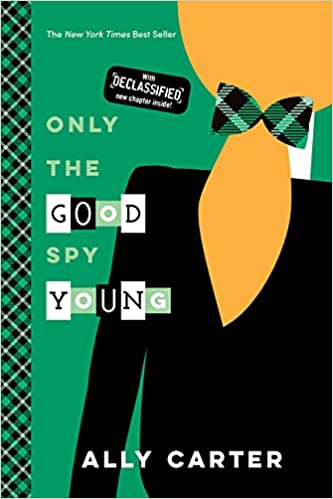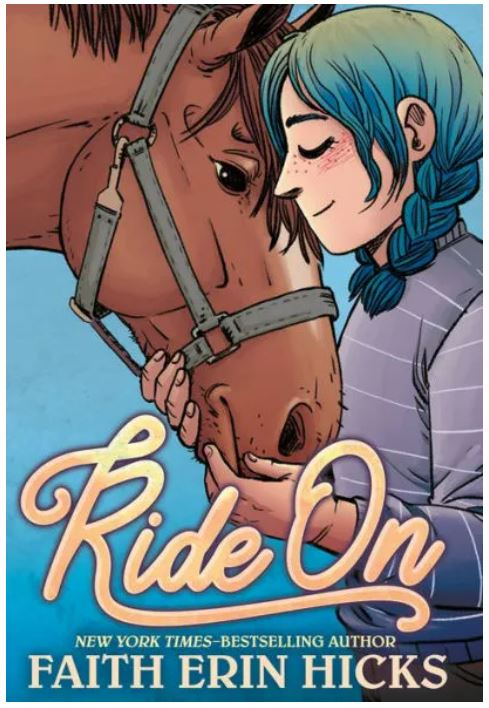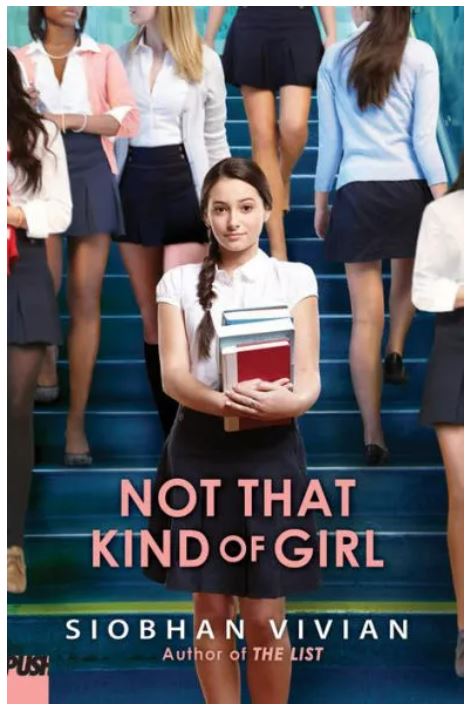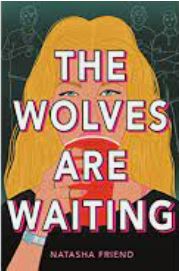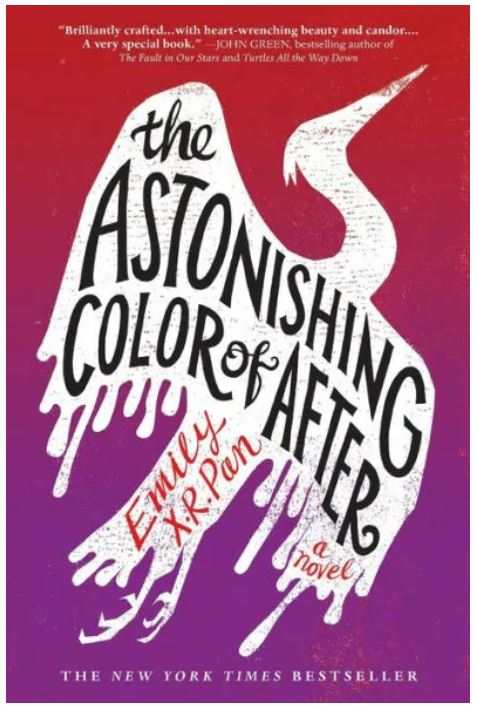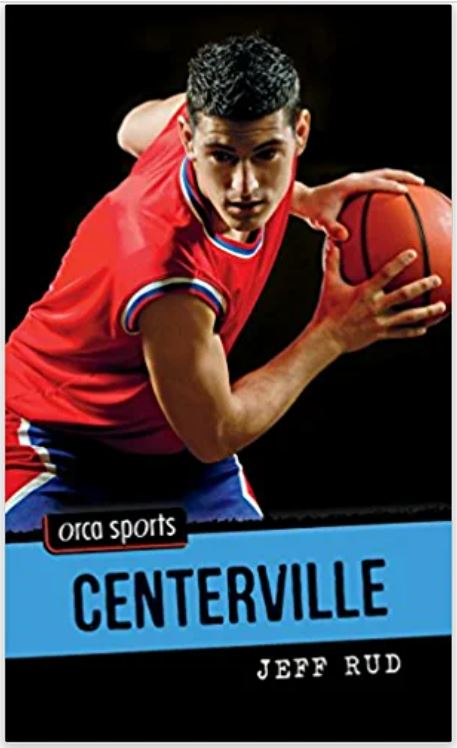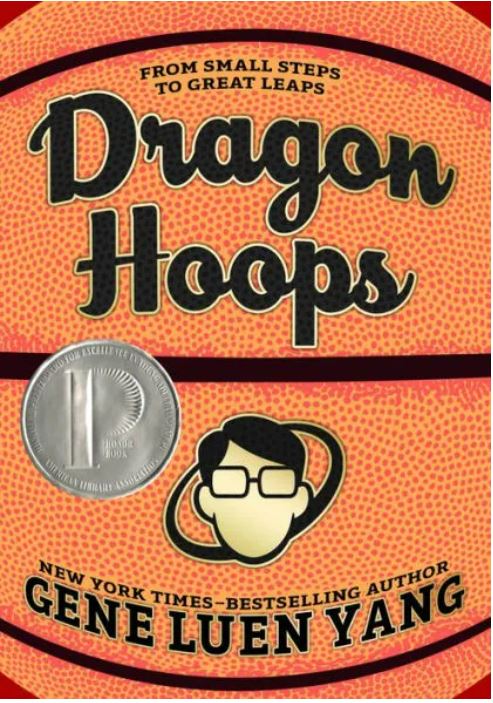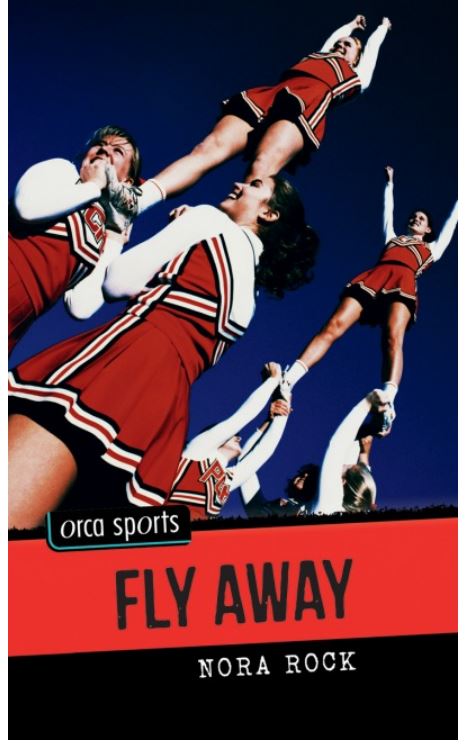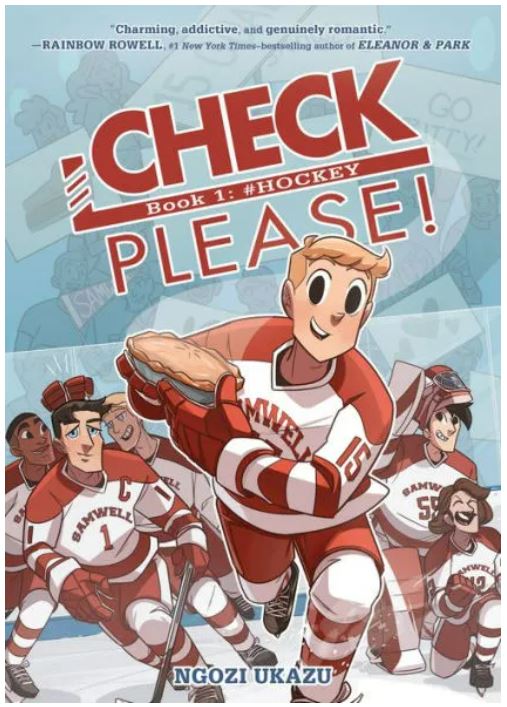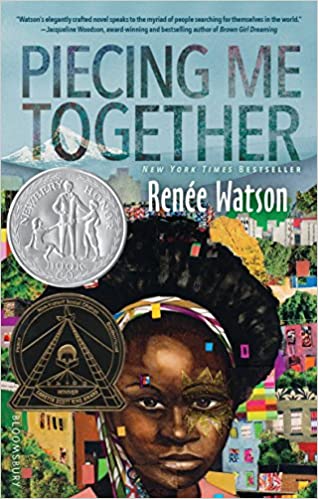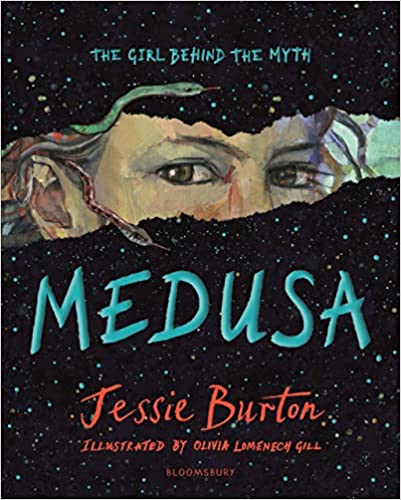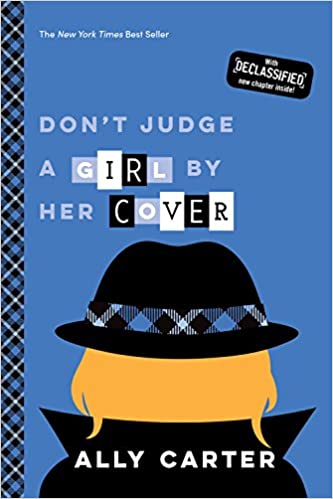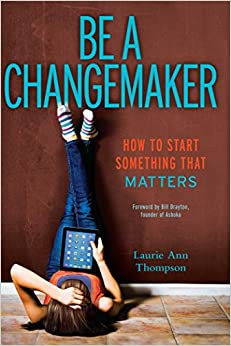Six friends. One RV. Five make it out.
Red thought this would be a normal spring break road trip with her friends, Maddy, Simon, and Arthur. Maddy’s older brother, Oliver, and his perfect girlfriend, Reyna, come along as chaperones. But things start falling apart after the RV unexpectedly crashes, stranding them in the middle of nowhere with no cell service. Soon, it becomes clear that this was no accident. Someone had masterminded all of this.
A sniper’s voice in the woods tells them that one of them has a secret. Once that person confesses, they die; the rest go free. Alliances form and tensions rise, forcing Red to recall harsh truths about her past and come to terms with the fact that not everything in her life is as straightforward as it seems.
Red is an incredibly complex protagonist. Right away, it’s clear that there’s more to her than meets the eye. Her thought process is quite scattered, so readers initially only get small glimpses into her background but those glimpses are powerful enough to convey that her home life is quite rocky. When Red was in middle school, her mother was killed, leaving Red to take on household responsibilities while her dad was consumed by grief. Throughout the novel, she must work through the guilt related to her mother’s death. Red is a puzzle that slowly comes together as she and her friends work together, first to devise an escape plan and then to figure out which of them is the target. But is there a liar among them? Buried secrets will be forced to come to light and tensions inside the RV will reach deadly levels. Not all of them will survive the night.
While Jackson uses traditional third-person narration, every character is equally fleshed out and has a distinct personality. Each of them has a role, even if it may not be obvious at first. In the beginning, Oliver takes control and seems to be the unquestioned leader, but power dynamics subtly shift over time and each character has their moment in the spotlight. As each new piece of information is revealed, Red is forced to reevaluate her relationship with her best friend’s family. This creates a familiar experience for teenage readers who learn that their childhood perceptions of the people around them are not necessarily the full truth.
Jackson is a master at grabbing the reader’s attention and not letting it go for 400 pages. Pacing is maintained through multiple internal plots and sagas that all come together in the end; every story element is there for a reason. With each failed escape attempt, Jackson raises the stakes impossibly high, creating delicious suspense. Characters must grapple with their sense of right and wrong, and question what they think they know about themselves and the people closest to them. Five Survive will stay with readers long after they finish the final page. Although it’s action-packed, it’s also a fascinating glimpse into human psychology, examining what drives people to make the decisions they do and keep the secrets they keep. Jump into another suspense-filled thriller by reading We Were Liars by E. Lockhart or The Agathas by Kathleen Glasgow & Liz Lawson.
Sexual Content
- A few sexual “that’s what she said” jokes are made.
Violence
- Oliver and Maddy’s mother is an attorney who is currently involved in a case related to a conflict between two gangs. When describing the case, Oliver mentions some violent altercations. “At the end of August last year, one of the leaders, Joseph Mannino, was killed by another, Francesco Gotti. Allegedly, I should say. Shot him twice in the back of the head.”
- After the RV breaks down, the six hear a loud noise outside. When they go outside to investigate, a rifle is shot. “A crack in the darkness, louder now that she was outside with it. Red flinched, hands up to her ears, and the red dot wasn’t there anymore. But there was something else. A splintered hole in the RV. Not the size of a fingernail. The size of a bullet.” This scene occurs over two pages.
- In an internal flashback, Red remembers reading a graphic description of how her mother, a police officer, was killed. “Mom on her knees. Begging for her life…On her knees, terrified, knowing what was about to happen. And then it did: two shots to the back of the head. Killed with her own service weapon.”
- The six devise an escape plan using reflections in a mirror. The sniper would shoot at the reflection, thinking that one of them was coming out, revealing where the sniper was hiding and allowing them to run in the opposite direction. As predicted, the sniper shoots: “Behind Simon, there was a splintered hole in the wooden base of the dining booth, where the bullet had struck through after the mirror, probably out the other side of the RV back into the dark night. Through glass and wood and wood and plastic and metal. Skin and bone would be nothing in its path.”
- An elderly couple, Don and Joyce, drive by and, noticing the broken down RV, offer to help. The sniper communicates via walkie-talkie that the six have to drive them away; if they ask for help, the couple will be shot. Oliver slips them an SOS note despite protests from the other five, and the sniper kills them. “Crack. Too quick. Joyce folded sideways onto the road, a space where the middle of her face had been…Crack. A plume of blood in the headlights. A gaping hole in Don’s face, beside his forever-open mouth. He fell slowly, knees buckling first, crumpling backward over his legs, bent all wrong. Empty stare up at the stars, a halo of red pooling on the road.”
- Oliver describes a bar fight he was in a few months before. Someone was hitting on his girlfriend, Reyna. Oliver describes, “So I pull Reyna away from the guy and I tell him to leave her alone. And then this guy loses it. He shoves me and I’m asking him what his problem is. And then he hits me, punches me right in the face…So I did what any other guy in the situation would do: I hit him back. And maybe it was too hard, I don’t know. But I think the guy gets knocked out. He falls back on the pavement and, you know, he’s breathing heavy like he’s unconscious. He’s not bleeding out or anything.” It is later revealed that this person died a few days later as a result of this incident.
- Thinking that Arthur is the one with the secret, Oliver attacks him, demanding a confession. “Oliver slapped a hand down on the kitchen counter beside him and then he charged, wrapping his hands in Arthur’s shirt, driving him backward.” This incident continues over four pages, with the fight described between interludes of dialogue.
- The sniper shoots Maddy in the leg when she tries to get to Don and Joyce’s abandoned car to get help, and the five work together to stop the bleeding as best they can. This is the focus for seven pages; Maddy’s injury is referred to throughout the rest of the novel.
- The police arrive and chaos ensues. Multiple people are shot and Oliver threatens to set fire to the RV. “Red’s hands jumped to her ears at the sound of the rifle, her eyes flickering from Oliver, lying dead still on the road, to Arthur clutching at this neck, to the police officer in front of her. But the woman wasn’t looking at Red. She was looking at the dark shape of the walkie-talkie in Red’s hand. It must have been instinct for her too. Her gun flashed. A tiny firework. Something stung Red in the chest, breaking through…Her hand cradled her chest, pressed against her dark red shirt. Her fingers came away and the red came away with them.” Several people are injured, but only Oliver dies. This scene lasts six pages.
Drugs and Alcohol
- A few references to drinking and being drunk are made. For example, Simon sits down awkwardly next to Red, who remarks, “You’re drunk already? I thought you only had like three beers.” When he moves closer, she “smells the sharp metallic tang on his breath.”
Language
- Profanity is frequently used, mostly variations of “fuck” as well as a few instances of “shit” and “ass.”
- “Oh god” is rarely used as an exclamation.
Supernatural
- None
Spiritual Content
- None
